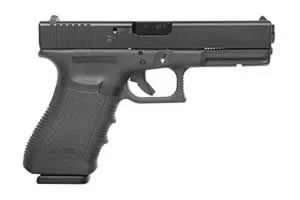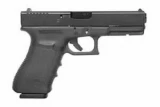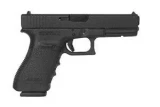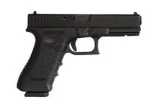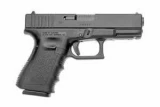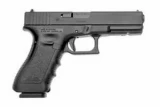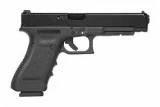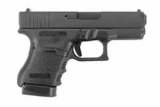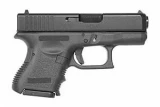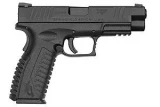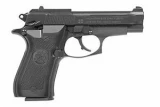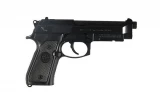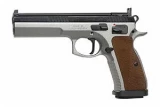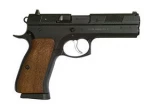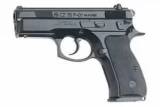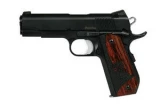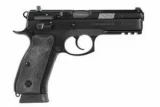Glock 20 vs Ruby Automatic
Put handguns head to head to compare caliber and more.
| vs |
$2.00
|
| Handguns | Glock 20 | Ruby Automatic |
|---|---|---|
| Summary | ||
| Rating | ||
| Rank | ||
| Action | Safe Action | |
| Caliber | 10mm Auto | |
| Capacity | 15+1 | 17+1 |
| Finish | Black | Stainless Steel |
| Sights | Fixed | Dovetail 3 Dot |
| Barrel Length | 4.60" | |
| Weight | 40 oz | |
| Gun Type | Pistol | |
| Details | ||
| Brand | Glock | |
| Reviews | See 10 Reviews | N/A |
| Prices | ||
| MSRP | $811.88 | $1.00 |
| Used Price | $568.32 | $0.70 |
| Sale Price | $730.69 | $0.90 |
Handguns Descriptions
Glock 20
The GLOCK 20 Gen4, in 10mm, provides nothing short of massive firepower. The use of GLOCK hi-tech polymer considerably reduces felt recoil. With muzzle energy of 550 ft/lbs and a magazine capacity of 15 rounds, this 10mm is your reliable companion on every hunt. The Gen4 edition now incorporates a wider selection of grip dimensions to make customizing your grip even more precise. Glock 20 Gen 4 Specs at a glance - Caliber: 10mm Barrel: 4.61 inches Overall Length: 8.07 inches Weight: 30.69 ounces (empty) Grips: Polymer, modular backstrap Sights: White-dot Action: Semi-auto Finish: Polymer frame/Tenifer slide Capacity: 15+1
Ruby Automatic
In 1914, just before the start of the First World War, Gabilondo started manufacture of a sturdy self-loading pistol based on the Browning Model 1903 and chambered for the 7.65mm Browning/.32 ACP cartridge. Unusual for the time, the magazine capacity was nine shots instead of the usual six or seven. The pistol was intended for export to the Americas, and despite the small calibre it was designed with military and police sales in mind. Other Spanish manufacturers had copied the Browning since around 1905. The Ruby, apart from the extended magazine appears to be a direct copy of a pistol called the "Victoria" made by Esperanza and Unceta. This pistol used features patented by Pedro Careaga in 1911, and by the Esperanza and Unceta company in 1912. These patents may have covered the frame-mounted safety (instead of a grip safety), and an internal striker (instead of a hammer).[1]

